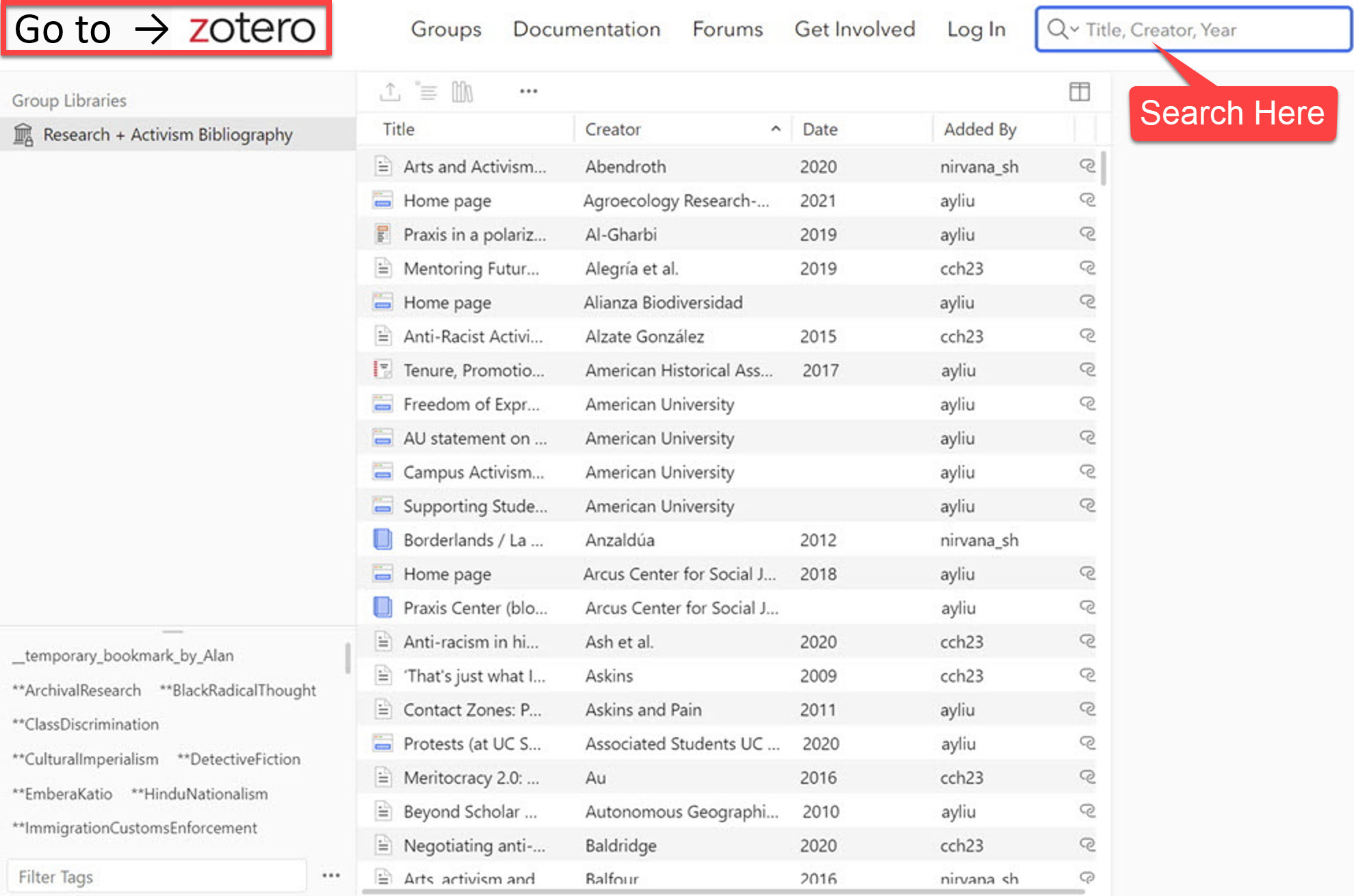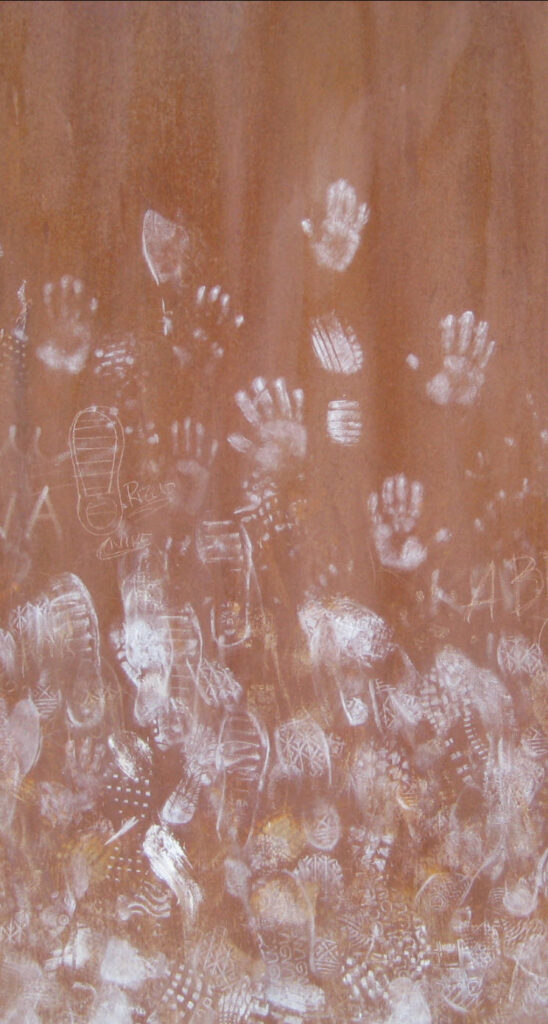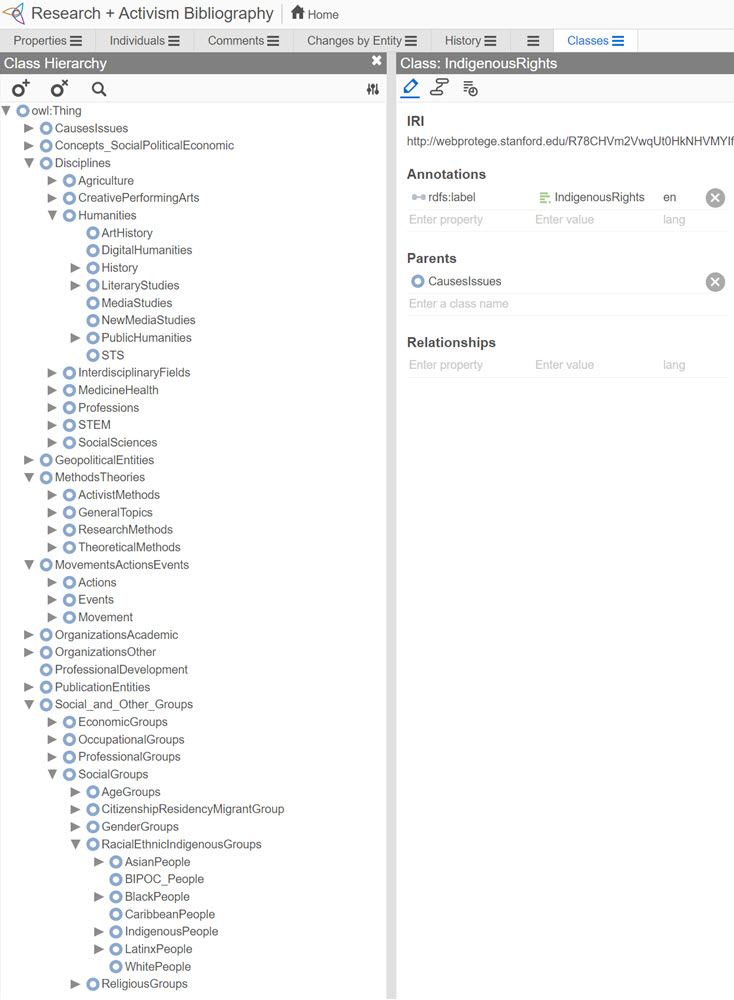Specific causes & issues: Ageism | AI Bias | AIDS | Antiracism (see also Racism) | Antiwar | Apartheid | Caste antidiscrimination | Censorship | Childcare | Class discrimination | Decolonization | Digital justice | Disability rights | Drugs | Education reform (➦ In HigherEd) | Economic Inequality | Environment (➦ Biodiversity ➦ Climate change ➦ Environmental justice) | Feminist activism | Food justice (➦ Food sovereignty | Slow food) | Freedom of speech | Gender equality (➦ Reproductive labor [See also Womens rights]) | Health care reform (➦ Health advocacy) | Heteronormativity (➦ Toxic masculinity) | Housing & zoning issues (➦ Gentrification ➦ Houselessness (including homelessness) ➦ Housing reform ➦ Skidrow) | Human rights | Indigenous rights | Information access | Infrastructure | Labor activism (➦ Adjunct instructors | Anti-work | Care work | Domestic work | Feminized labor | Reproductive labor | Sex work | Unionization) | Land politics | Language activism (➦ Linguistic discrimination | Linguistic diversity) | Legal system (➦ Criminal justice system ➦ Police reform ➦ Prison abolition) | Medical system reform | Mental health | Microaggressions | Population movement (➦ Forced displacement ★ Migration ➦ Immigration ★ Immigration activism ★ Undocumented residents rights) | Prison change (➦ Prison abolition ➦ Prison reform) | Racism (see also Antiracism) | Reproductive justice (➦ Abortion | Reproductive labor) | Right-wing activism | Surveillance | Trade treaties | Water justice | Women's rights (➦ Feminicide ➦ Violence against women)
➧ Administration
➧ Faculty (➦ Adjunct ➦ BIPOC [★ Black ★ Latinx] ➦ LGBTQ ➦ Women ➦ Tenure-line ➦ Tenured)
➧ Students (➦ BIPOC students ➦ Graduate students ➦ Undergraduate Students)
➧ Staff (non-instructional) | Campus police
➧ Policies related to politics: Academic freedom | Freedom of expression on campus | Protest & activism actions | Political campaigns on campus | Disciplinary actions
➧ Personnel policies: Hiring, promotion & tenure | Documenting scholar-activism | Personnel case diversity statements
➧ Campus resources supporting activism
➧ Discussions & critiques of higher education policies above
➧ U.K. Government(s): [TBD]
Advanced Search (on Zotero site)

About Research + Activism Bibliography
Concept
In the recent era of Black Lives Matter, the “wall” against Latinx peoples in the U.S. or barriers against migrants elsewhere, renewed attacks on people of Asian ancestry—and, in a general and longer vista, the buildup of concerns for racial, ethnic, indigenous, immigrant, and non-binary gendered people as well as for economic precarity and many other walks of non-privileged life—what should, or can, research be to mold “scholar activism,” “applied research,” “research impact,” or “community engagement” to today’s activism trying to change society?
In turn how is activism reshaped by today’s research, including new digital and networked methods? What are the traditions, innovations, and problems of blended research activism—in higher education and other organizations (community, NGO, arts, etc.)? How do different disciplines theorize and practice such work? And how does the U.S. compare to other national or regional research frameworks in this regard?

These are questions posed by our Research + Activism Bibliography, part of the Antiracism Initiative that our UC Santa Barbara English Department started in 2020-21 in answer to a call for such intiatiaves by our university’s Humanities & Fine Arts Division. In our immediate context, we wanted to know how new paradigms of research + activism can be integrated in university hiring, promotion, governance, curricula, student outreach and recruitment, public communications, and funding development.
But as we worked, it became clear that the scope of opportunities and concerns about “research + activism” is much wider than any one kind of institution or domain of society.
Scope

How wide should the scope of our bibliography be? We focus on the intersection marked by the plus sign (“+“) at the intersection of research + activism. We don’t intend to collect works that are only research (even if about activism) or only activism. Those are different projects. Our goal is a conceptual map of the between zone—unstable as it may be in organizational, disciplinary, methodological, sociopolitical, cultural, and other dimensions—where research and activism mix, and in so doing mix up how we think about the relations (just as one example) between a scholar-activist conducting research in a university and a community activist group pursuing investigative research.
The following principles define our bibliography’s scope. We phrase them in the form of the cascading series of questions and issues we posed to ourselves when testing if a work should be added:
Focus:
Does the work discuss—or is it in another “meta” way about—research + activism so as to thematize and bring focused thought to the intersection of the two? For example, methodological discussions about “scholar activism” clearly belong in the bibliography because they are “meta”-discussions. University policy statements on freedom of speech or promotion policies related to activism are another example of what belongs because they thematize aspects of the topic. Also, works that may be primarily about an applied topic (e.g., an essay on the Watts Riots of 1965 in Los Angeles) but also contain discussion about research + activism (e.g., a section reflecting on the problems scholars face in interviewing those involved) also belong.
If the work does not meet the above criteria, then can it be included by meeting these conditions?:
- Is it clear from a work’s content, context, tone, or other indicators that, as research, it is part of an individual’s or collective’s activist agenda (e.g., is part of anti-racism or environmental justice movements)? An example is Leon Litwack’s scholarship (see New York Times obituary)
- Or, is it clear that the work or project, as activism, also conducts research (e.g., investigative work) and is not only a direct activism statement, manifesto, initiative, etc.?
Ours is a human-curated project, and we rely on our team of a faculty director and graduate students (consulting on occasion with advisors and others) to make judgment calls about what is “in” and “out” of the bibliography. We are fallible. It is often a gray zone of judgment we work in—of instinct based on our evolving sense of the overall research + activism area and our readings of works in context (e.g., the context we seek out in the form of bios of scholars, book reviews, and whether other works we have collected often cite the work). We tend to err on the side of inclusion, collecting a wider rather than narrower swath of materials around that “+” sign in our project name.
Parallelism: Our Research + Activism Bibliography includes areas related to antiracism (the original motivating context for the project when we started in 2020). But we cover parallel areas—e.g., related to environmentalism and environmental justice, feminism, LGBTQ+ rights, disability, economic inequality, immigration, etc. These provide important contextual and comparative understandings of shared (or different) issues of research + activism.
Multidisciplinarity: For similar reasons of comparative breadth, our Research + Activism Bibliography is multidisciplinary (e.g., covering the humanities, arts, social sciences, and sciences).
Internationalism: Also, we aim to include international coverage beyond our own near-home American context, though we acknowledge we are a U.S. based project and limited in our ability to discover and understand relevant works from other parts of the world with different social, educational, and other systems. (Our team includes members of international origin, but we are of course limited in our international representation.)
Multilingualism (partial): Our Research + Activism Bibliography primarily collects English-language works. But we try to include some works in other languages. As a matter of principle, we always fill out the “language” field in the Zotero records underlying our bibliography, even if most entries currently are “en” (the ISO 639-1 code for “English”). Making English a “marked” rather than “unmarked” parameter in our bibliography allows for expansion in the future in other languages.
Bibliography Organization (Tags Scheme)
How do we organize our bibliography? We’ve put a lot of thought into making an organized classification of entities and their relationships—e.g., causes, issues, movements, concepts, disciplines, geopolitical areas, methods, theories, organizations, and social groups. It’s a complex, evolving mesh we want to weave between the actors and objects of research + activism (each such entity corresponding to a different page of citations in our bibliography). We seek a sensible scheme of labeling and classifying that mediates between free-tagging (which runs the risk of chaos and insensitivity in naming causes, social groups, and other entities) and an overly rigid “controlled vocabulary” of the who, what, when, where, when, and how of research + activism.
So we created a partially formalized “ontology” or system of “tags” for citations in our bibliography—an evolving (not yet fully defined) controlled vocabulary that grows and flexes. (As Wikipedia defines, “In computer science and information science, an ontology encompasses a representation, formal naming and definition of the categories, properties and relations between the concepts, data and entities that substantiate one, many, or all domains of discourse. More simply, an ontology is a way of showing the properties of a subject area and how they are related, by defining a set of concepts and categories that represent the subject.”)
Specifically, we created a partial implementation of an ontology in the Semantic Web‘s OWL (Web Ontology Language). It is “partial” because at present we are concentrating only on tagging citations as OWL “property” classes (think of them as categories of things that can be named in nouns) and not developing the “relationships” that semantically define how properties interrelate (e.g., the fact that an “event” can be relationally “part of” a social “cause”). Keeping the syntax of our ontology incomplete at present is how we are keeping it open to rapid, agile change. We can add or revise classes of citations without needing to adjust the fine grain of their relations. In the future, we hope that our project or others can take the start we have made on a research + activism ontology and develop it into a full-scale ontology with defined relationships between properties. (We use the Protégé ontology tool, in its online WebProtégé version, to manage our ontology.)
A Note on Naming:
While any tagging or labeling can be problematic, that for the topics of our Research + Activism Bibliography is especially so. Labels for groups of people, causes, and even geopolitical areas related to research + activism can be sensitive. These challenges are compounded by materials and audiences from international locations. (“African-American” or “Asian-American,” for example, are common phrases in a U.S context for works of research + activism. But other labels are needed for peoples and their diaspora as they apply to other nations.)
Where naming issues are important, we try to do our homework and consult. For example, we have consulted naming guides and standards for nations, geopolitical regions, languages, and racial and ethnic groups.

Technology Infrastructure
The specific research infrastructure we use to create the Research + Activism Bibliography includes Zotero (the base platform and tool we use to collect, store, and organize our bibliography); WordPress (the content management system we use to present our bibliography online in a form allowing for more narration and organization than Zotero’s native online interface); and Katie Seaborn’s Zotpress plugin for WordPress (which we use to automate pulling in citations from Zotero into WordPress through filtering by tags).
We also acknowledge that our project in the English Department at the University of California, Santa Barbara, is sited on unceded Chumash land and waters (more info). This is a foundational “infrastructure” or “platform.” Recognizing this is part of the ethos of our research + activism project.
rev. 17 June 2021

